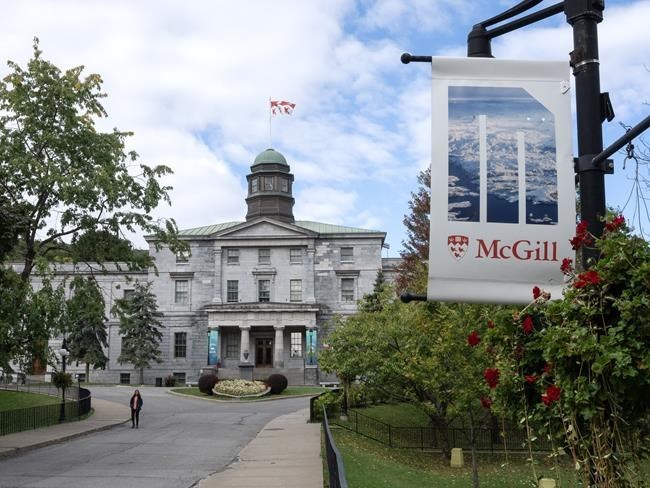MONTREAL — Quebec is doubling tuition for out-of-province students, more than half of whom come from Ontario, saying taxpayers shouldn't subsidize English-speaking people who leave after graduating.
Tuition for Canadians outside Quebec will jump to $17,000 from $8,992, Higher Education Minister Pascale Déry announced Friday. She said the government will charge universities $20,000 for each international student they recruit and direct that money only to francophone universities.
The impact of the measures is expected to hit Quebec's three English universities hardest as they have far more international and out-of-province students compared to the French institutions. Two are located in Montreal — McGill University and Concordia University — while the third, Bishop's University, is in Lennoxville, Que., east of Montreal.
The new rate of $17,000 per year is closer to what it costs the Quebec state to educate a university student, Déry said, adding that most out-of-province and international students leave the province after graduating.
"It costs the government of Quebec and the taxpayers of Quebec a very high amount of money for students who come here and who don't stay here," she said.
Quebec pays $110 million per year covering the gap between what out-of-province students pay and what it costs to educate them, she said. The new fee structure will allow the government to recoup that money and use it to strengthen French-language universities.
But the higher tuition isn't just about money. Quebec says it is also responding to what it claims is the decline of the French language in Montreal.
Language Minister Jean-François Roberge told reporters Friday that out-of-province students can be heard speaking English in the city's downtown core and elsewhere.
“We can't put on rose-coloured glasses — in Montreal, there are more and more Canadian and international students and they mainly attend our English-speaking universities, English-speaking programs," Roberge said.
"Currently, these universities receive funds to welcome thousands of Canadian students from outside Quebec each year who do not necessarily have knowledge of French. And, in government, we feel we need to change the situation and have the courage to do it.”
Quebec is permitting universities to charge as much as they want for international students, but will collect $20,000 for each of them.
McGill University principal Deep Saini said he was disappointed by the announcement, and he called on the government to equip students to live and succeed in Quebec.
"A thriving knowledge economy requires a global exchange of talent," Saini said in a statement. "The measures announced today will have a major, long-term effect on Quebec’s economy. The skilled people we attract and retain contribute significantly to Quebec and provide our businesses with the highly qualified workforce they so urgently need."
Concordia University president Graham Carr said he too was shocked and disappointed.
"I think the message that this policy has sent today is that the government is putting some walls around access to education in Quebec for people from elsewhere, and I find that really disappointing and counterproductive," Carr said in an interview.
Half of Concordia's international students stay in Quebec, he said. In the last calendar year, Concordia placed 4,000 students in co-op internships with Quebec businesses. If the province supports students to learn French and gives them opportunities to work in the province, "they're going to stay here," he said.
The impact from Friday's announcement is difficult to measure immediately, but there will likely be fewer out-of-province students next year, Carr said, adding that charging more to foreign students — who already pay between $20,000 and $28,000 — won't help English-language schools make up the difference.
"We're back to the price-point challenge again," Carr said. "Students are not cash cows, although the minister seems to think they are; you can't just raise tuition without limits — it will not work."
Déry said the new tuition rates apply to all Canadian students in Quebec, the vast majority of whom are English-speaking and attend anglophone institutions. More than 50 per cent of out-of-province students in Quebec come from Ontario.
"This is not a measure against anglophones and I want to be clear on that," Déry said. "I'm not closing the doors to any anglophone students who want to come to McGill, Concordia, Bishop's, they will be able to come, it's just that we're not ready to continue … (paying) $110 million for students that mostly are not staying here."
The fee hike applies to undergraduate and graduate students who begin their studies in 2024; PhD and research students won't be impacted. Students under international agreements are also exempt.
This report by The Canadian Press was first published Oct. 13, 2023.
Sidhartha Banerjee, The Canadian Press



